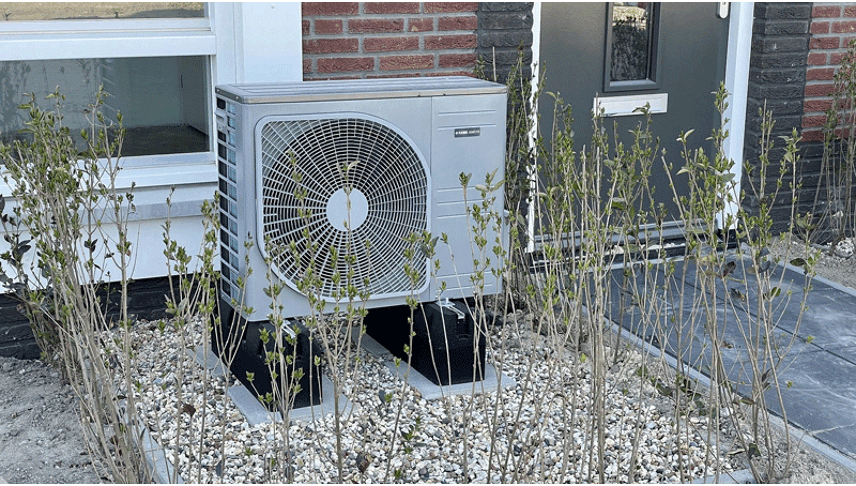Register for free and continue reading
Join our growing army of changemakers and get unlimited access to our premium content

Pictured: A home fitted with a heat pump
Heating engineers will be eligible for grants of up to £500 towards training costs, creating new green jobs, and helping to future-proof the heating industry.
The HPA has been calling for the Government to provide more help to kickstart the heat pump installer base to bolster the chances of the UK hitting its heat pump installation targets.
Grants of up to £500 will cover most of the costs of a level three heat pump training course.
Meanwhile, manufacturing members, including some of HPA’s members, are expected to offer additional discounts to participating trainees – further reducing costs for installers and providing a more affordable route to becoming a heat pump engineer.
These additional benefits could be worth up to a further £500 in product vouchers, additional training, and other support.
The HPA set out in its Pathway to Heat Pumps report that the first pillar of transforming Britain’s heating industry would be to create a highly skilled installer workforce.
The report recommended more intervention from the government to support adopters of low-carbon heating technology through compensation for training and loss of earnings whilst undertaking this.
The Association’s 2020 Building the Installer Base for Net Zero report called for the Government to introduce a voucher scheme.
The HPA has been working with the new Department for Energy Security and Net Zero on the development of this scheme in recent weeks, and its predecessor, the Department of Business, Energy and Industrial Strategy.
HPA chair Phil Hurley said: “Installers are the most important ambassadors of heat pumps to the consumer, and the HPA warmly welcomes this scheme to support them build on their existing skill base to become the green heating installers of the future.
“This is exactly the sort of early-bird support we have called for.
“We already have the building blocks in place – our own training course and capacity among our members to train 40,000 installers per year.
“This government scheme will give the industry a real boost in helping installers upskill for heat pumps to take over from gas boilers as the go-to heating technology for new and replacement systems alike in the majority of homes.”
Policy gaps
Policymaking regarding low-carbon heating is not currently sufficient to align with the UK’s legally binding climate targets, the Climate Change Committee (CCC) stated last year. The Committee urged the Government to move past a history of failed delivery programmes in this field, with its chair Lord Deben having vocally spoken on many occasions about a “lost decade” of progress in this field.
The CCC notes that there has been “no sustained” reduction in emissions from buildings in the last decade and that plans to change this are “not yet fully comprehensive or complete and significant delivery risks remain for many policy areas” that are listed in the Heat and Buildings Strategy.
The UK Government is targeting 600,000 heat pump installations annually by 2028 but the funding noted in the Strategy will not deliver this uplift in installations. Despite a 47% year-on-year increase recorded in annual installations in 2021, just 55,000 low-carbon heat pumps were installed.
Beyond providing public funding for heat pumps to unlock private funding, the CCC has called on the Government to better target funding at low-income homes and to ensure that the base of skilled heat pump installers and engineers grows. The Committee’s concerns were reiterated in a recent report from the Lords Environment and Climate Change Committee, which also focused on the need for better communications and consumer protections.


Please login or Register to leave a comment.